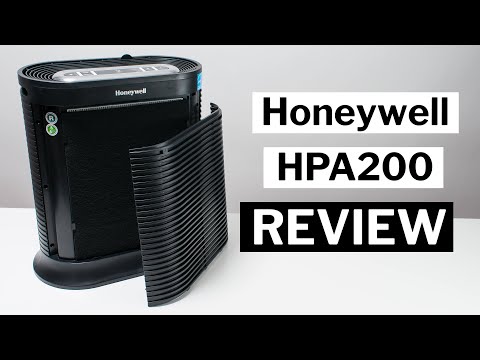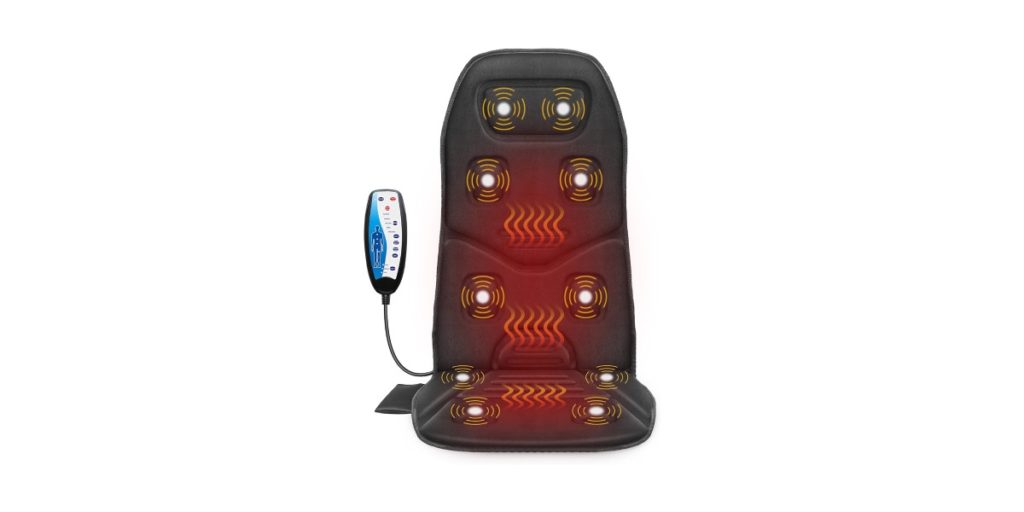When you’re on the road, there are many truck stop scams staying alert to potential scams at truck stops is vital. Knowing the red flags can save you time and money. From suspiciously low prices to high-pressure sales tactics, these warning signs can help you make informed decisions. But what should you do when you encounter these red flags? Understanding how to navigate these situations is imperative for your safety and financial well-being. Let’s explore what to look out for.
Key Takeaways
- Compare fuel prices with local averages; unusually low prices can indicate scams or poor-quality services.
- Watch for immediate payment requests, as legitimate services typically allow time for consideration.
- Be cautious of high-pressure sales tactics that create urgency; take time to evaluate offers.
- Verify service providers by checking online reviews and asking for proper identification and credentials.
- Look for clear contracts and consistent communication; vague or inconsistent information is a red flag.
Unusually Low Prices
When you’re on the road, unusually low prices at truck stops can be a red flag.
Legitimate businesses follow market rates, so prices considerably lower than competitors often indicate potential scams. If you notice a truck stop offering fuel or services at rates 10-20% cheaper than nearby stations, it’s time to proceed with caution.
Scammers lure unsuspecting truckers in with these enticing deals, only to deliver poor-quality fuel or nonexistent services. You might also face hidden fees later on.
Always compare prices against local averages and check the reputation of the truck stop with fellow drivers or trusted sources. Your awareness of unusually low prices can save you from costly mistakes and guarantee a safer journey.
High-Pressure Sales Tactics

When dealing with sales offers at truck stops, be alert for high-pressure tactics that aim to rush your decision.
Scammers often create a false sense of urgency, pushing you to act quickly on unsolicited offers that seem too good to be true.
Always take your time to evaluate any deal and avoid immediate cash payments or deposits, which can signal a scam.
Recognize Aggressive Persuasion Techniques
Have you ever felt rushed into a decision at a truck stop? High-pressure sales tactics are a common element of trucking scams. Scammers use aggressive persuasion to create a false sense of urgency, pushing you to act without proper consideration. They may present limited-time offers or claim exclusivity, making you feel special yet pressured. Emotional manipulation is also common, emphasizing dire consequences to cloud your judgment.
| Signs of Aggressive Persuasion | What to Watch For |
|---|---|
| Urgency claims | “This deal won’t last!” |
| Limited availability | “Only for you!” |
| Emotional appeals | “You could miss out!” |
| Persistent follow-ups | “You need to decide now!” |
| Downplaying risks | “It’s a no-brainer!” |
Stay alert and take your time to avoid falling for these scams.
Watch for Urgency Pressure Indicating Truck Stop Scams
How often have you encountered a scenario where you’re urged to make a snap decision while at a truck stop? This urgency pressure is a common tactic used by scammers to manipulate you into hasty choices.
They might claim that a deal is only available for a limited time, pushing you to act without proper verification. Be cautious of anyone insisting on immediate payment or action; legitimate services typically allow time for thoughtful consideration.
High-pressure sales tactics often involve aggressive language that clouds your judgment. Always trust your instincts—if a situation feels rushed or overly aggressive, it’s likely a red flag for deception.
Research any offers thoroughly before proceeding to safeguard yourself against potential scams.
Identify Unsolicited Offers
Urgency pressure often leads to unsolicited offers that can catch drivers off guard at truck stops. Scammers thrive on creating a false sense of urgency, so it’s essential to stay alert. Here’s how to recognize these tactics:
| Red Flag | Description | Action to Take |
|---|---|---|
| Limited Availability | Claims of items running out quickly | Verify stock availability |
| Expiring Pricing | Promotions that vanish soon | Ask for written confirmation |
| Too Good to Be True | Deals that seem excessively cheap | Research comparable prices |
| High-Pressure Sales | Pushy tactics urging immediate decisions | Take your time to assess |
| Lack of Transparency | Unclear details about costs and services | Request detailed descriptions |
Always verify the legitimacy of unsolicited offers before making any commitments. Your freedom depends on it.
Lack of Proper Identification

When someone approaches you claiming to offer a service, always verify their credentials and request company documentation.
If they hesitate or refuse to provide identification, trust your instincts—this could indicate fraudulent intent.
Don’t hesitate to ask for their contact information and cross-check it with official sources to confirm their legitimacy.
Verify Driver Credentials
Verifying driver credentials is essential in preventing scams at truck stops. Always ask for a driver’s identification, including their commercial driver’s license (CDL) and any company-issued credentials. This guarantees they’re authorized to operate the vehicle.
Be cautious if the driver can’t provide proper identification or if their documents show inconsistent information—these are potential signs of fraud. Cross-check the driver’s name and details against company records and load confirmations to verify driver credentials effectively.
Utilize technology, like mobile apps or databases, to confirm affiliations before engaging in financial transactions. If a driver seems reluctant or evasive about showing ID, take it as a red flag and reassess the situation.
Protect yourself; trust your instincts.
Check Company Documentation
To protect yourself from potential scams at truck stops, always guarantee that any company or individual requesting payment or services presents proper identification.
It’s essential to check company documentation, including a valid business license and insurance paperwork. Be wary of anyone who can’t produce a company ID; this could be a red flag for a scam.
Legitimate carriers will typically have recognizable branding, such as logos and consistent formatting on their documents. Look for details that you can cross-verify, like addresses and contact information.
If something feels off, such as mismatched addresses or unusual formats, trust your instincts. Remember, verifying their identity through independent channels can save you from falling victim to fraudulent schemes.
Request Contact Information
One of the best ways to safeguard yourself from scams at truck stops is by requesting contact information from anyone seeking personal or financial details.
Scammers often lack legitimate credentials, so always ask for proper identification. If someone claims to be from a reputable company, verify their identity by cross-referencing their contact information with official records.
Be especially cautious of individuals who refuse to provide identification or become evasive when questioned; this is a significant red flag.
Utilize official company channels to confirm the identity of any service providers before engaging in transactions.
Keep a record of contact information for trusted sources, and report any suspicious behavior to local authorities to help combat scams effectively.
Vague or Inconsistent Information
While maneuvering through the trucking industry, vague or inconsistent information can be a significant red flag for potential scams. When you encounter individuals or companies offering unclear or conflicting details, it’s essential to stay alert.
Here are some warning signs to watch for:
- Conflicting load details or payment expectations
- Lack of clear and detailed contracts
- Inconsistent communication styles or shifting narratives
- Requests for information that don’t match previous conversations
- Information that’s hard to verify through official channels
Always verify claims or requests through trusted sources. Scammers thrive on confusion and may provide misleading or incomplete information.
Stay vigilant and protect yourself from potential fraud by seeking clarity and consistency.
Requests for Immediate Payment

Requests for immediate payment often signal a potential scam, especially when they come from unfamiliar service providers. Scammers frequently use this tactic to pressure you into hasty decisions, so don’t fall for it.
Always verify the legitimacy of the service provider making the payment request; cross-check their information against known contacts or business records. If they demand immediate payment without prior service confirmation, consider it a red flag. Legitimate businesses typically provide invoices or confirmations first.
Furthermore, be cautious of callers impersonating reputable companies; verify their details match what’s on file. To minimize risks, opt for fuel cards or direct payments instead of cash, as these methods offer better tracking and accountability.
Stay vigilant!
Unverified Service Providers

Unverified service providers can pose significant risks, especially when you’re on the road and in need of assistance. Engaging with these operators can lead to fraud schemes that threaten both your wallet and your safety.
To protect yourself, always do your homework before hiring any service.
- Check online reviews and ratings.
- Verify business credentials and licenses.
- Avoid providers demanding immediate cash payments.
- Use reputable service providers known in the trucking community.
- Trust your instincts; if it seems too good to be true, it probably is.
Staying vigilant against unverified service providers not only shields you from scams but also guarantees your journey remains smooth and secure.
Suspicious Communication Patterns
Be cautious of inconsistent caller information when you receive unexpected requests for payment.
Scammers often create confusion by using different names or numbers, making it hard to verify their identity.
Always double-check any payment requests by contacting the company directly through official channels.
Inconsistent Caller Information
Communication from unknown callers can often raise red flags, especially when their information doesn’t match the official contact details of the company they claim to represent.
Watch out for these signs of inconsistent caller information:
- Caller ID shows a different number than the company’s official line.
- The caller provides vague details about their identity or role.
- You feel pressured to take immediate action or make a payment.
- The request seems unusual or deviates from standard procedures.
- The caller avoids answering your questions clearly.
Always cross-reference the communication with your dispatch or broker office before proceeding with any financial transactions.
Trust your instincts; if something feels off, it probably is. Protect yourself from potential scams by staying vigilant.
Unverified Payment Requests
Scammers often exploit payment requests to trick individuals into making quick, unverified transactions.
Be cautious of requests coming through unverified channels; scammers often use fake email addresses or phone numbers that don’t match company records.
Watch for urgent communication patterns, as fraudsters create pressure to bypass careful scrutiny.
Always verify unverified payment requests by contacting the company or individual through trusted contact information.
Look for inconsistencies in the request details—discrepancies in amounts or services can signal fraud.
Trust your instincts; if something feels off, take the time to investigate thoroughly before proceeding with any transaction.
Protect your finances by staying alert and informed.
Offers That Seem Too Good to Be True

When you encounter offers that seem too good to be true, it’s crucial to approach them with caution.
These offers often mask fraudulent tactics designed to deceive you. Keep an eye out for these red flags:
- Freight rates considerably above market averages
- Unusually low fuel prices or discounts that vanish after payment
- Cash advances or loans promising immediate approval with minimal checks
- Requests for immediate cash or wire transfers
- Impersonation of reputable businesses to gain trust
Always verify the authenticity of any offer.
Legitimate service providers won’t pressure you for immediate payment. By staying vigilant, you can protect yourself from scams that prey on unwary drivers seeking liberation in their trucking journey.
Reluctance to Provide References
While maneuvering potential scams in the trucking industry, another significant red flag is a service provider’s reluctance to offer references.
A legitimate provider should be enthusiastic to share testimonials from previous clients, allowing you to verify their credibility and reliability. If a company hesitates or outright refuses to provide references, it often suggests a lack of experience or a troubling past involving fraudulent activity.
Trustworthy businesses typically have positive reviews readily available, while scammers tend to hide their unverified history.
Don’t overlook this warning sign; a reluctance to provide references can indicate a scam in the making. Always follow up on any references provided, checking for consistency in their feedback to ascertain you’re dealing with a reputable service.
scam
One of the most telling signs of a potential scam in the trucking industry is the request for payment through unusual methods.
Be cautious if someone insists on non-standard payment options, as these are often red flags:
- Prepaid gift cards
- Cryptocurrency transactions
- Wire transfers
- Cash-only deals
- Requests for immediate payments
Always validate any unusual payment requests by consulting your company’s policies and reaching out to your freight brokers.
Scammers often create a false sense of urgency, so take your time to verify. Confirm all transactions are documented, and keep receipts to protect against disputes or fraud claims.
Trustworthy businesses stick to established payment systems; don’t fall for unconventional methods that aim to avoid traceability.
Conclusion
By staying alert to these ten red flags, you can protect yourself from truck stop scams that could cost you time and money. Remember that your instincts often know best; if something feels off, it probably is. Trusting a seemingly friendly face or an irresistible offer might lead to regret. Coincidentally, many truckers share tales of near-misses, reinforcing the importance of vigilance. Stay informed, stay cautious, and keep your hard-earned cash where it belongs—safe in your pocket.










